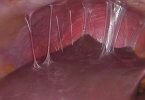What's in this article?
Joints form the connections between bones. They provide support and help you move. Any damage to the joints from disease or injury can interfere with your movement and cause a lot of pain.
Many different conditions can lead to painful joints, including osteoarthritis, rheumatoid arthritis, bursitis, gout, strains, sprains, and other injuries. Joint pain is extremely common. In one national survey, about one-third of adults reported having joint pain within the past 30 days. Knee pain was the most common complaint, followed by shoulder and hip pain, but joint pain can affect any part of your body, from your ankles and feet to your shoulders and hands. As you get older, painful joints become increasingly more common.
Joint pain can range from mildly irritating to debilitating. It may go away after a few weeks (acute), or last for several weeks or months (chronic). Even short-term pain and swelling in the joints can affect your quality of life. Whatever the cause of joint pain, you can usually manage it with medication, physical therapy, or alternative treatments.
Joint Pain Symptoms & Signs
Joint pain can be caused by injury affecting any of the ligaments, bursae, or tendons surrounding the joint. Injury can also affect the ligaments, cartilage, and bones within the joint. Pain is also a feature of joint inflammation(arthritis, such as rheumatoid arthritis and osteoarthritis) and infection, and extremely rarely it can be a cause of cancer of the joint. Pain within the joint is a common cause of shoulder pain, ankle pain, and knee pain. Joint pain is also referred to as arthralgia. The sexually transmitted diseases (STDs) chlamydia and gonorrhea can lead to joint pain.
Symptoms and signs associated with joint pain can include
- joint redness,
- joint swelling,
- joint tenderness,
- joint warmth,
- limping,
- locking of the joint,
- loss of range of motion of the joint,
- stiffness,
- weakness.
Causes of Joint Pain
Causes of joint pain include:
- Adult Still’s disease
- Ankylosing spondylitis
- Avascular necrosis
- Bone cancer
- Broken bone
- Bursitis
- Complex regional pain syndrome
- Dislocation
- Meralgia paresthetica
- Gonococcal arthritis
- Gout
- Hypothyroidism
- Juvenile rheumatoid arthritis
- Leukemia
- Lupus
- Lyme disease
- Osteoarthritis
- Osteomyelitis
- Paget’s disease of bone
- Polymyalgia rheumatica
- Pseudogout
- Psoriatic arthritis
- Reactive arthritis
- Sprains and strains
- Rheumatoid arthritis
- Rickets
- Sarcoidosis
- Septic arthritis
- Sprains and strains
- Tendinitis
Home Care for Joint Pain
Follow your doctor’s recommendation for treating the cause of the pain.
For nonarthritis joint pain, both rest and exercise are important. Warm baths, massage, and stretching exercises should be used as often as possible.
Aceteminophen (Tylenol) may help the soreness feel better. Nonsteroidal anti-inflammatory drugs (NSAIDS) such as ibuprofen or naproxen may help relieve pain and swelling. Talk to your health care provider before giving aspirin or NSAIDs such as ibuprofen to children.
Joint Pain Treatment
The treatment of joint pain is directed toward the precise underlying cause. If the problem is an injury, the initial treatment often includes rest, cold applications, and antiinflammatory medications. Additional medications for pain control may or may not be required. Gradual rehabilitation physical therapy may be needed.
If there is a form of arthritis causing the joint pain, antiinflammatory medications may be recommended, followed by other medications directed at the cause of the arthritis. If there is disease of the bone, ligament, or cartilage, surgical operation may be required.
Self-Care at Home
Initial treatment for joint pain at home might include rest, cold application, and medication to control pain and inflammation. With persistent pain, a medical evaluation by a health-care practitioner is warranted.
Medical Treatment
Medical treatment depends on the underlying cause of the joint pain as discussed above. If arthritis is causing joint pain, it can require antiinflammatory medication and a variety of other medications depending on the type of arthritis. Surgery can be required for cartilage or ligament damage.





